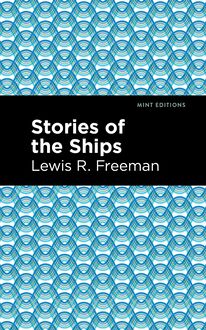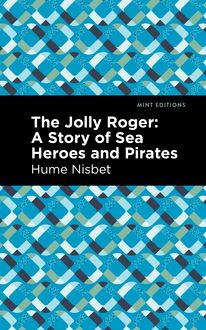-
 Univers
Univers
-
 Ebooks
Ebooks
-
 Livres audio
Livres audio
-
 Presse
Presse
-
 Podcasts
Podcasts
-
 BD
BD
-
 Documents
Documents
-
- Cours
- Révisions
- Ressources pédagogiques
- Sciences de l’éducation
- Manuels scolaires
- Langues
- Travaux de classe
- Annales de BEP
- Etudes supérieures
- Maternelle et primaire
- Fiches de lecture
- Orientation scolaire
- Méthodologie
- Corrigés de devoir
- Annales d’examens et concours
- Annales du bac
- Annales du brevet
- Rapports de stage
La lecture à portée de main
Vous pourrez modifier la taille du texte de cet ouvrage
Découvre YouScribe en t'inscrivant gratuitement
Je m'inscrisDécouvre YouScribe en t'inscrivant gratuitement
Je m'inscrisEn savoir plus
Vous pourrez modifier la taille du texte de cet ouvrage
En savoir plus

Description
In 1925, Lewis R Freeman became a correspondent for the United States Navy Fleet, living and working among them. Traveling all around the Pacific Ocean, Freeman observed both the environment and his fellow travelers. Separated into three sections, Stories of the Ships is a collection of narratives about this time in Freeman’s life, depicting firsthand experiences and retelling the accounts and tales of the men that served in the Navy around this time. The first section, titled, Stories of the Ships introduces Freeman’s background as a correspondent and discusses the temperament of the sailors. This section also includes the tale of an old ship that sailed through most of the seven seas—the Cornwall. The next section, Life in the Fleet chronicles Freeman’s day-to-day adventures, explaining his routines, responsibilities, and revealing his conversations with the crew members and captains. With nine chapters, this section contains the most stories and is the largest section of the book. Finally, the last section before the endnotes, America Arrives, examines the relationship between America and other countries such as France and Britain through the conversations and attitudes of the sailors from those other countries. Freeman recounts several discussions where he was referred to being unlike other Americans. With these three sections and the endnotes, Stories of the Ships provides a thorough account of the many years Lewis R. Freeman spent as a correspondent.
Through the depiction of real-life conversations and experiences collected around the globe, Stories of the Ships by Lewis R. Freeman is a fascinating narrative that gives modern day audiences an intimate and authentic perspective on nautical life. With the focus on the United States Navy Fleet, Freeman provides privileged information on the innerworkings of the U.S Navy during the 20th century.
This edition of Stories of the Ships by Lewis R. Freeman features a striking new cover design and is printed in a modern and readable font. With these accommodations, Stories of the Ships is restored to modern standards, while preserving the original mastery of Lewis R. Freeman.
Sujets
Informations
| Publié par | Mint Editions |
| Date de parution | 09 février 2021 |
| Nombre de lectures | 1 |
| EAN13 | 9781513279381 |
| Langue | English |
| Poids de l'ouvrage | 3 Mo |
Informations légales : prix de location à la page 0,0500€. Cette information est donnée uniquement à titre indicatif conformément à la législation en vigueur.
Extrait
Stories of the Ships
Lewis R. Freeman
Stories of the Ships was first published in 1919.
This edition published by Mint Editions 2021.
ISBN 9781513279176 | E-ISBN 9781513279381
Published by Mint Editions®
minteditionbooks .com
Publishing Director: Jennifer Newens
Design & Production: Rachel Lopez Metzger
Project Manager: Micaela Clark
Typesetting: Westchester Publishing Services
C ONTENTS I. S TORIES OF THE S HIPS T HE S TORY OF THE C ORNWALL I. Plymouth to the Falklands II. The Battle of the Falklands T HE S TORY OF THE S YDNEY I. The Signalman’s Tale II. Naval Hunnism II. L IFE IN THE F LEET A B ATTLESHIP AT S EA A N ORTH S EA S WEEP A V ISIT TO THE B RITISH F LEET T HE H EALTH OF THE F LEET E CONOMY IN THE G RAND F LEET C HRISTMAS IN A “H APPY ” S HIP I N A B ALLOON S HIP C OALING THE G RAND F LEET T HE S TOKERS III. A MERICA A RRIVES T HE U NITED S TATES N AVY “G ETTING T OGETHER ” I. How the Officers of the British and American Ships that are Working Together in European Waters are Making Each Other’s Acquaintance II. What the British Bluejacket Thinks of the American III. What the American Bluejacket Thinks of Britain and the British
I
STORIES OF THE SHIPS
T HE S TORY OF THE C ORNWALL
I. Plymouth to the Falklands
O F THE COUNTLESS STORIES OF naval action which I have listened to in the course of the months I have spent with the Grand Fleet, I cannot recall a single one which was told as the consequence of being asked for with malice aforethought. I have never yet found a man of action who was enamoured of the sound of his own voice raised in the recital of his own exploits, and if there is one thing more than another calculated to throw an otherwise not untalkative British Naval Officer into a state of uncommunicativeness, in comparison with which the traditional silence of the sphinx or the proverbial close-mouthedness of the clam are alike sheer garrulity, it is to ask him, point blank, to tell you (for instance) how he took his submarine into the Baltic, or what his destroyer did at Jutland, or how he fought his cruiser at Dogger Bank, or something similar.
The quiet-voiced but always interesting and often dramatic recitals of such things as these which I have heard have invariably been led up to quite incidentally—at dinner, on the bridge or quarter-deck, around the wardroom fire, or through something else that has just been told. Several times I have found in officers’ diaries—little records never meant for other eyes than those of the writers’ own friends or families—which have been turned over to me to verify some point regarding which I had inquired, laconic references to incidents and events of great human and even historic interest, and one of the most amusing and dramatic yarns I have ever listened to was told me in a “kite” balloon—plunging in the forty-mile wind against which it was being towed like a hooked salmon—by a man who had assured me before we went up that nothing really exciting had ever fallen to his experience.
It was in this way—an anecdote now and then as this or that incident of the day recalled it to his mind—that Captain— came to tell me the story of the Cornwall during those eventful early months of the war when he commanded that now famous cruiser. He mentioned her first, I believe, one night in his cabin when, referring to a stormy midwinter month, most of which had been spent by his Division of the Grand Fleet on some sort of work at sea, I spoke of the “rather strenuous interval” we had experienced.
“If you think life in a battleship of the Grand Fleet strenuous,” laughed the Captain, extending himself comfortably in his armchair before the glowing grate, “I wonder what you would have thought of the life we led in the old Cornwall . Not very far from a hundred and twenty thousand miles of steaming was her record for the first two years of the war, and in that time she ploughed most of the Seven Seas and coasted in the waters of all but one of the Six Continents. Always on the lookout for something or other, coaling as we could, provisioning as we might—let me tell you that coming to the Grand Fleet after that (at least until a few months had elapsed and the contrast wore off) was like retiring on a pension in comparison.”
He settled himself deeper into the soft upholstery, extended his feet nearer the fire, lighted a fresh cigar, and, in the hour which elapsed before the evening mail came aboard, told me of the work of the Cornwall in those first chaotic weeks of the war which preceded the battle of the Falklands.
“We were at Plymouth when the war began,” said he, “and our first work was in connexion with protecting and ‘shepherding’ safely to port several British ships carrying bullion which were still on the high seas. It was a baffling sort of a job, especially as there were two or three German raiders loose in the North Atlantic, the favourite ruse of each of which was to represent itself as a British cruiser engaged in the same benevolent work the Cornwall was on. Warned of these ‘wolves-in-shepherds’-clothing,’ the merchantmen we sought to protect were afraid to reveal their whereabouts by wireless, the consequence being that our first forerunning efforts to safeguard the seas resolved themselves into a sort of marine combination of ‘Blind-Man’s Buff’ and ‘Hide-and-Seek,’ played pretty well all over the Atlantic. All the ships with especially valuable cargoes got safely to port ultimately, though none of them, that I recall, directly under the wing of the Cornwall . It was our first taste of the ‘So-near-and-yet-so-far’ kind of life that is the inevitable lot of the cruiser which essays the dual r ô le of ‘Commerce Protector’ and ‘Raider Chaser.’
“After a few hours at ‘Gib,’ we were next sent across to Casa Blanca, where the appearance of the Cornwall was about the first tangible evidence that French Africa had of the fact that England was really coming into the war in earnest. There was a good deal of unrest in Morocco at the time, for the Germans were even then at work upon their insidious propaganda among the Moslems of all the colonies of the Allies. The ‘buzz’ in the bazaars that the appearance of a British warship started must have served a very useful purpose at this critical juncture in carrying to the Arabs of the interior word that France was not going to have to stand alone against Germany. Our reception by both the French and native population of Casa Blanca was most enthusiastic, and during all of our stay a cheering procession followed in the wake of every party of officers or men who went ashore.
“Leaving Casa Blanca, we were sent back to the Atlantic to search for commerce destroyers, ultimately working south by the Canaries and Cape Verde Islands to South American waters, where the Karlsruhe was then at the zenith of her activities. The chase of this enterprising and elusive raider, whose career was finally brought to an inglorious end by her going aground on a West Indian Island, kept the Cornwall —along with a number of other British cruisers—steadily on the move, until the ominous and painful news of the destruction of Craddock’s fleet off Coronel suddenly brought us face to face with the fact that there was soon going to be bigger game than a lone pirate to be stalked.
“We never had the luck to sight even so much as the smoke of the Karlsruhe , although—as I only learned too late to take advantage of the information—the Cornwall was within an hour or two’s steaming of her on one occasion. I did think we had her once, though—a jolly amusing incident it was, too. I was getting uncomfortably short of food at the time—a very common experience in the ‘here-to-day-and-gone-to-morrow’ sort of life we were leading;—so that when the welcome news reached me by wireless one morning that a British ship—Buenos Aires to New York with frozen beef—was due to pass through the waters we were then patrolling, I lost no time in heading over to intercept her on the chance of doing a bit of marketing.
“We picked her up promptly as reckoned, but, while she was still hull down on the horizon, her skipper began to signal frantically, ‘ I am being chased by the “Karlsruhe”! ’ Here was luck indeed. I ordered ‘Action Stations’ to be sounded, and the course of the ship to be altered toward the point where I figured the smoke of the pursuing pirate would begin to smudge the sky-line as she came swooping down upon her prey. Sighting nothing after holding on this course for a while, I came to the conclusion that the raider must be hidden by the impenetrable smoke-pall with which the flying beef-ship had masked a wide arc of the western horizon, and headed up in that direction, begging the fugitive in the meantime to give me the bearing of her pursuer as accurately as possible.
“Her only reply to this, however, was to belch out ‘smoke-screen’ faster than ever and continue rending the empyrean ether with renewed ‘ I am being chased by the “Karlsruhe”! ’ In vain I assured her that we were the H.M.S. Cornwall , and would take the greatest delight in seeing that the chase was put an end to, if she would only tell us from which direction the Karlsruhe was coming, and cease to throw out a bituminous blanket for the enemy to hide behind. Blacker and blacker rolled the smoke, heavier and heavier piled the screen to leeward, and still more frantically shrilled the appeals for help. At the end of my patience at actions which it now began to dawn upon me looked more than a little suspicious, I headed the Cornwall straight after the runaway and soon reduced the interval separating us sufficiently to reach her with ‘Visual.’ She brought up sharp at my ‘Stop instantly!’ and a quarter of an hour later my boarding party was clambering over her side.
“‘Where’s the Karlsruhe ?’ I shouted impatiently to the Boarding Officer as his boat came back alongside again. I knew something of the accuracy of German long range naval gunnery, and was
-
 Univers
Univers
-
 Ebooks
Ebooks
-
 Livres audio
Livres audio
-
 Presse
Presse
-
 Podcasts
Podcasts
-
 BD
BD
-
 Documents
Documents
-
Jeunesse
-
Littérature
-
Ressources professionnelles
-
Santé et bien-être
-
Savoirs
-
Education
-
Loisirs et hobbies
-
Art, musique et cinéma
-
Actualité et débat de société
-
Jeunesse
-
Littérature
-
Ressources professionnelles
-
Santé et bien-être
-
Savoirs
-
Education
-
Loisirs et hobbies
-
Art, musique et cinéma
-
Actualité et débat de société
-
Actualités
-
Lifestyle
-
Presse jeunesse
-
Presse professionnelle
-
Pratique
-
Presse sportive
-
Presse internationale
-
Culture & Médias
-
Action et Aventures
-
Science-fiction et Fantasy
-
Société
-
Jeunesse
-
Littérature
-
Ressources professionnelles
-
Santé et bien-être
-
Savoirs
-
Education
-
Loisirs et hobbies
-
Art, musique et cinéma
-
Actualité et débat de société
- Cours
- Révisions
- Ressources pédagogiques
- Sciences de l’éducation
- Manuels scolaires
- Langues
- Travaux de classe
- Annales de BEP
- Etudes supérieures
- Maternelle et primaire
- Fiches de lecture
- Orientation scolaire
- Méthodologie
- Corrigés de devoir
- Annales d’examens et concours
- Annales du bac
- Annales du brevet
- Rapports de stage




















